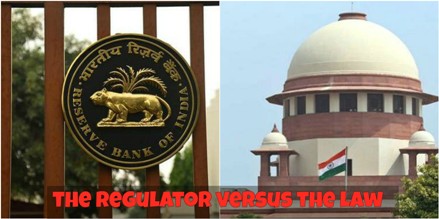

RBI's "One-Size-Fits-All" Circular Quashed By The Supreme Court
The RBI circular of February 12, 2018, that was also opposed by the government and which was the main reason that led to the then governor Urijit Patels resignation, has been struck down by the Supreme Court. The circular had tried to speed up bankruptcy proceedings by allowing banks to refer to the NCLT cases over Rs 2000cr which defaulted even by a day in repayments.By Sunil Garodia
First publised on 2019-04-05 21:13:21
But where the RBI erred was by treating all borrowers equally. Its circular showed that it thought one size would fit all and it did not take the peculiarities of different sectors into consideration. It did not revise the circular even when representations were made from several borrowers, especially from the power sector, highlighting the external factors like non-availability of coal and non-payments of dues from state power utilities, among others that prevented them from making timely payments. Finally, it was inflexible even when the government tried to show it reason. Although the insolvency process has been speeded up after the circular was issued as data available with the RBI shows it comes to naught as the Supreme Court has now struck it down.
The repercussions will be disastrous for the economy in general and lending banks in particular. Already, the international credit ratings agency Moodys has termed the SC order as being credit negative for banks. The least the RBI can now do is to study the Supreme Court order with a fine toothcomb and issue a new circular that takes everything the law and the concerns of the borrowers into consideration to come out with a new circular that does not spare willful defaulters but remains on the right side of the law. It is imperative that there is no let up in the fledgling insolvency process in the country while at the same time borrowers who have genuine concerns are allowed more time to pay up.











